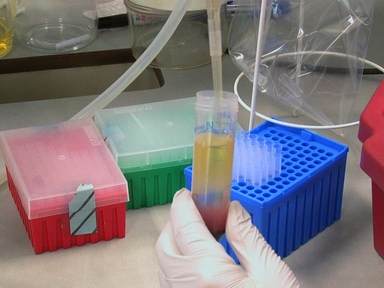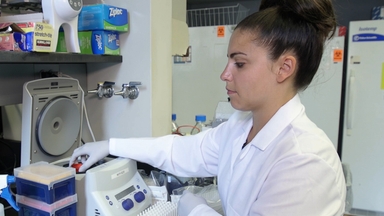Complementary Use of Microscopic Techniques and Fluorescence Reading in Studying Cryptococcus-Amoeba Interactions
June 22nd, 2019
•This paper details a protocol for preparing a co-culture of cryptococcal cells and amoebae that is studied using still, fluorescent images and high-resolution transmission electron microscope images. Illustrated here is how quantitative data can complement such qualitative information.
Tags
Related Videos

Use of an Optical Trap for Study of Host-Pathogen Interactions for Dynamic Live Cell Imaging

Use of the EpiAirway Model for Characterizing Long-term Host-pathogen Interactions

Assessing Hepatic Metabolic Changes During Progressive Colonization of Germ-free Mouse by 1H NMR Spectroscopy

Studying Interactions of Staphylococcus aureus with Neutrophils by Flow Cytometry and Time Lapse Microscopy

Use of Shigella flexneri to Study Autophagy-Cytoskeleton Interactions

A Novel In vitro Model for Studying the Interactions Between Human Whole Blood and Endothelium

Evaluation of the Efficacy And Toxicity of RNAs Targeting HIV-1 Production for Use in Gene or Drug Therapy

Visual and Microscopic Evaluation of Streptomyces Developmental Mutants

Co-immunoprecipitation Assay for Studying Functional Interactions Between Receptors and Enzymes

Analysis of SAMHD1 Restriction by Flow Cytometry in Human Myeloid U937 Cells
ABOUT JoVE
Copyright © 2024 MyJoVE Corporation. All rights reserved